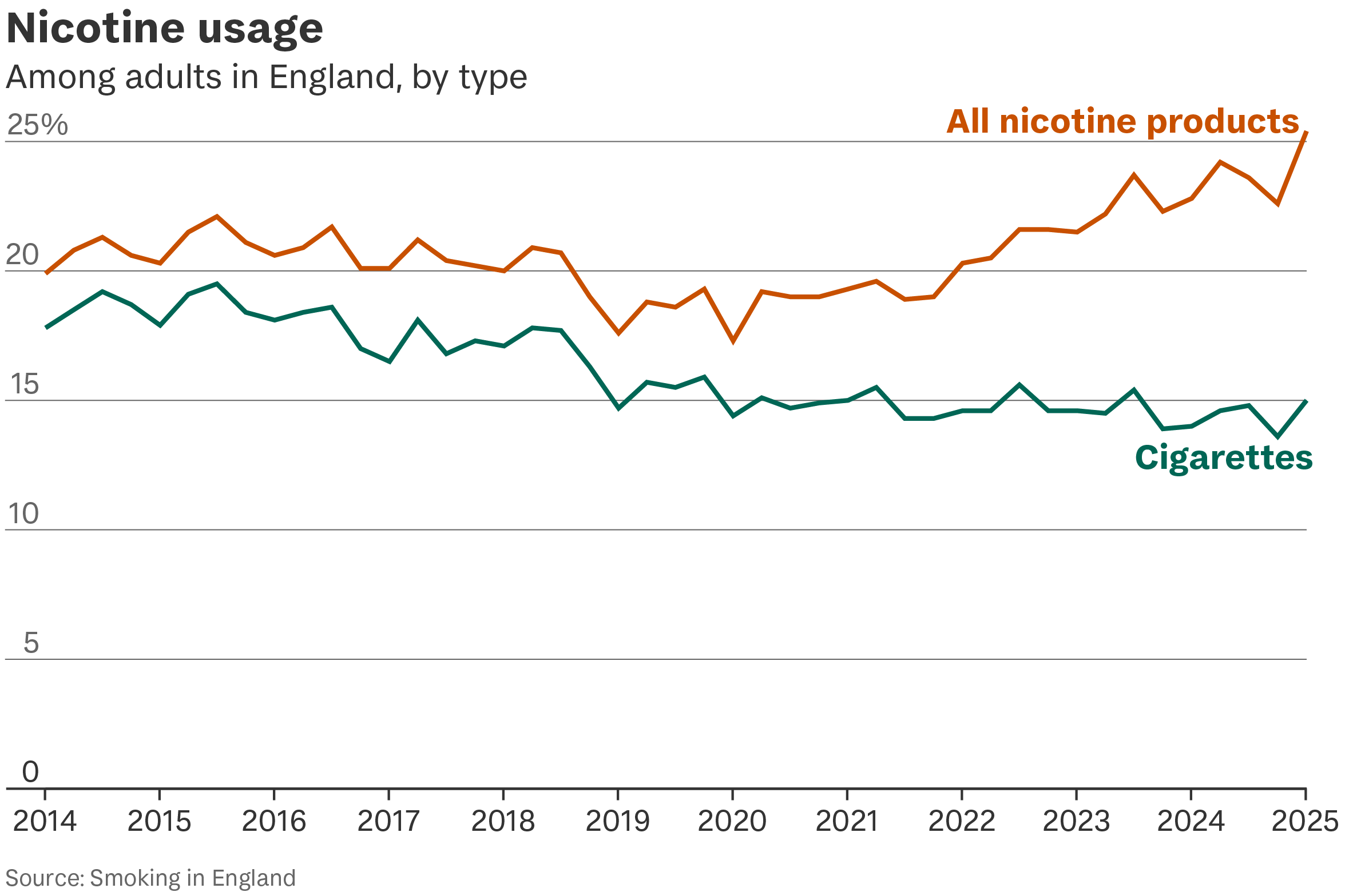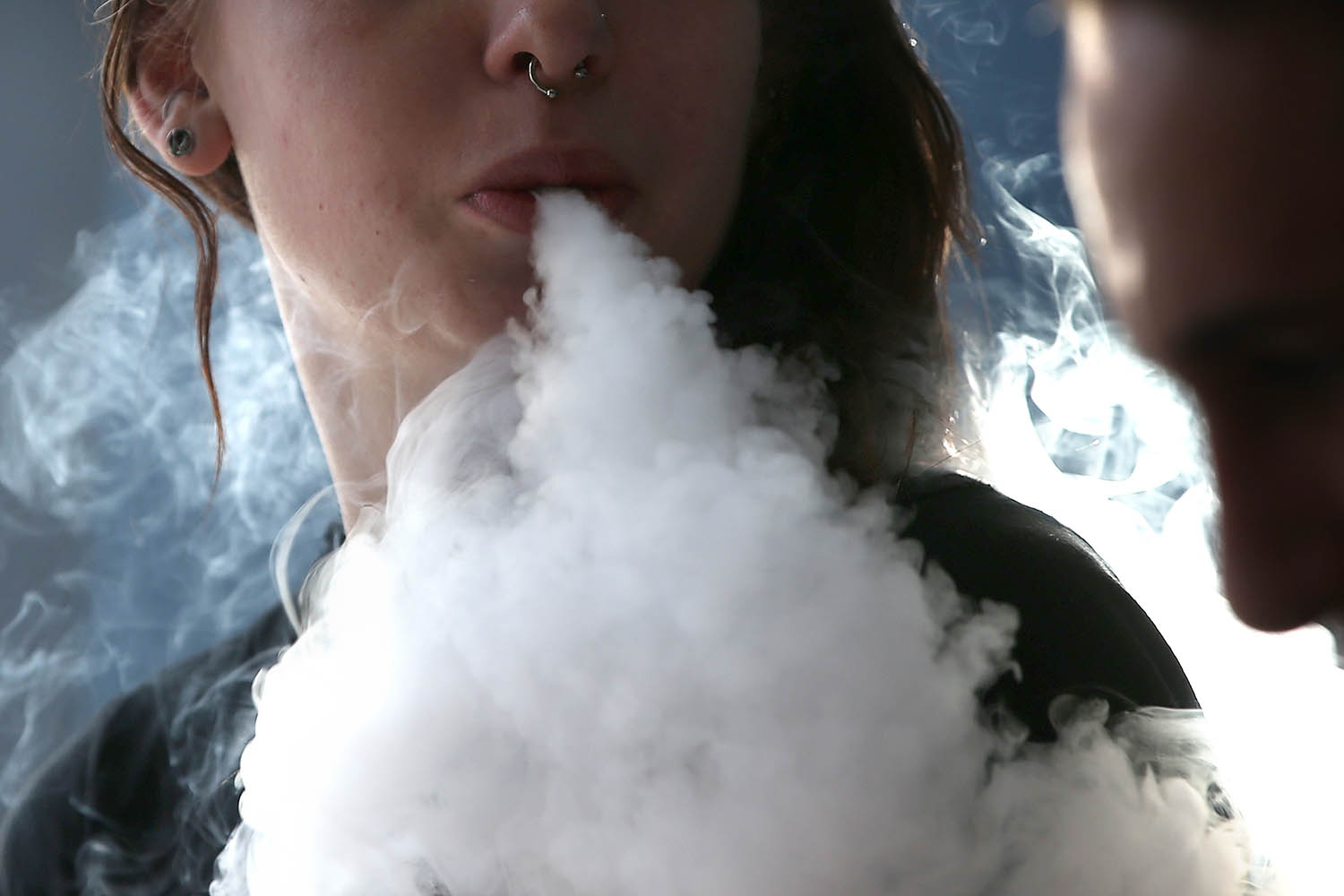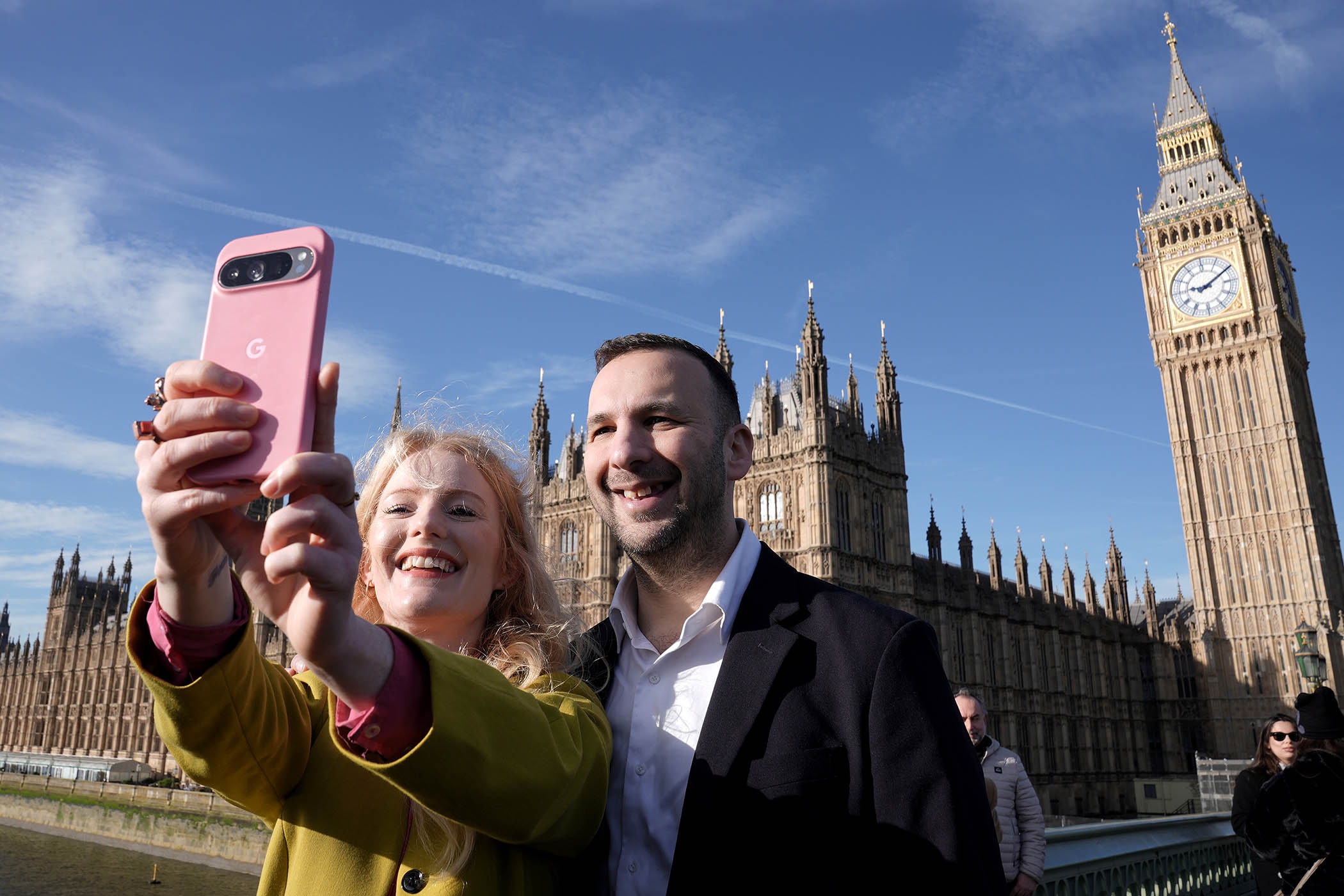UK shops can no longer sell single-use vapes after a national ban came into effect at the weekend.
So what? A decade ago, health authorities promoted vaping to smokers as a way of getting them to quit tobacco. The strategy appears to have worked: 12 per cent of UK adults now smoke, compared to 18 per cent in 2014. But vaping was also picked up by so-called ‘never smokers’, young people who have never lit a cigarette.
•
Before 2021, fewer than 1 per cent of British never smokers puffed on vapes;
•
today 14 per cent of non-smokers aged 18 to 24 do so regularly; and
•
more than 80 per cent of children aged 11 to 17 have vaped at least once.
Chuck. Most adult vapers use gadgets that can be recharged and refilled with liquid or cartridges. By contrast, the most popular devices among children are single-use, used by 54 per cent of vapers under 17. These
•
mostly cost between £2.50 and £7;
•
have a lithium battery;
•
typically contain 600 puffs and 20 mg of nicotine strength;
•
cannot be recharged after the battery runs out.
Everywhere. Convenience partly explains the popularity of single-use vapes. Unlike other types, they are ready to use straight out of the packet. They have become ubiquitous in supermarkets and corner shops.

Safer. Scientists agree vaping is far better than smoking. The Tories put it at the centre of public health efforts after a 2015 study found e-cigarettes are 95 per cent less harmful than tobacco.
Uncertainty. But the long-term health impacts of vaping are not clear. One study published last year found vapers experience changes in the DNA cells of their mouths similar to smokers who develop cancer. In 2022, the chief clinician of Cancer Research UK said it would be a decade until we know whether vaping causes lung cancer.
Pros and cons. Sarah Jackson from University College London says some never smokers may have smoked if vaping were not an option. “In this case, vaping is clearly less harmful.”
Technically single-use vapes can be recycled. It is a slow and complicated process that involves disassembling them by hand. In reality the vast majority are chucked away when they run out of charge. In 2022, this amounted to 40 tonnes of lithium in the UK – enough to power 5,000 EVs.
Hazard. This buildup of litter has implications for the environment and is also behind a surge in bin lorry fires caused when lithium is crushed.
Marketing. For now vaping companies can still sell products in brightly coloured packaging in flavours such as Blue Razz Ice or Watermelon Bubblegum, which appeal to children.
Newsletters
Choose the newsletters you want to receive
View more
For information about how The Observer protects your data, read our Privacy Policy
More to come. This will change with the passage of the Tobacco and Vapes Bill, currently in the Lords. In addition to regulating the packaging, flavours and display of vapes, the bill will ban the sale of tobacco to anyone born after January 2009. It was introduced under Rishi Sunak.
Concerns. It is not clear whether outlawing disposable devices will stem vaping among children. Enterprising companies are finding ways to circumvent the ban by selling rechargeable “kits” with disposable plastic pods. LBC reported yesterday that single-use vapes were still being stocked in convenience stores.
What’s more… Never smokers aside, successfully getting rid of single-use vapes may come with unintended consequences. Last year, the Department for Environment, Food & Rural Affairs warned 29 per cent of vapers could go back to tobacco as a result of the ban.
Photograph by Justin Sullivan/Getty



